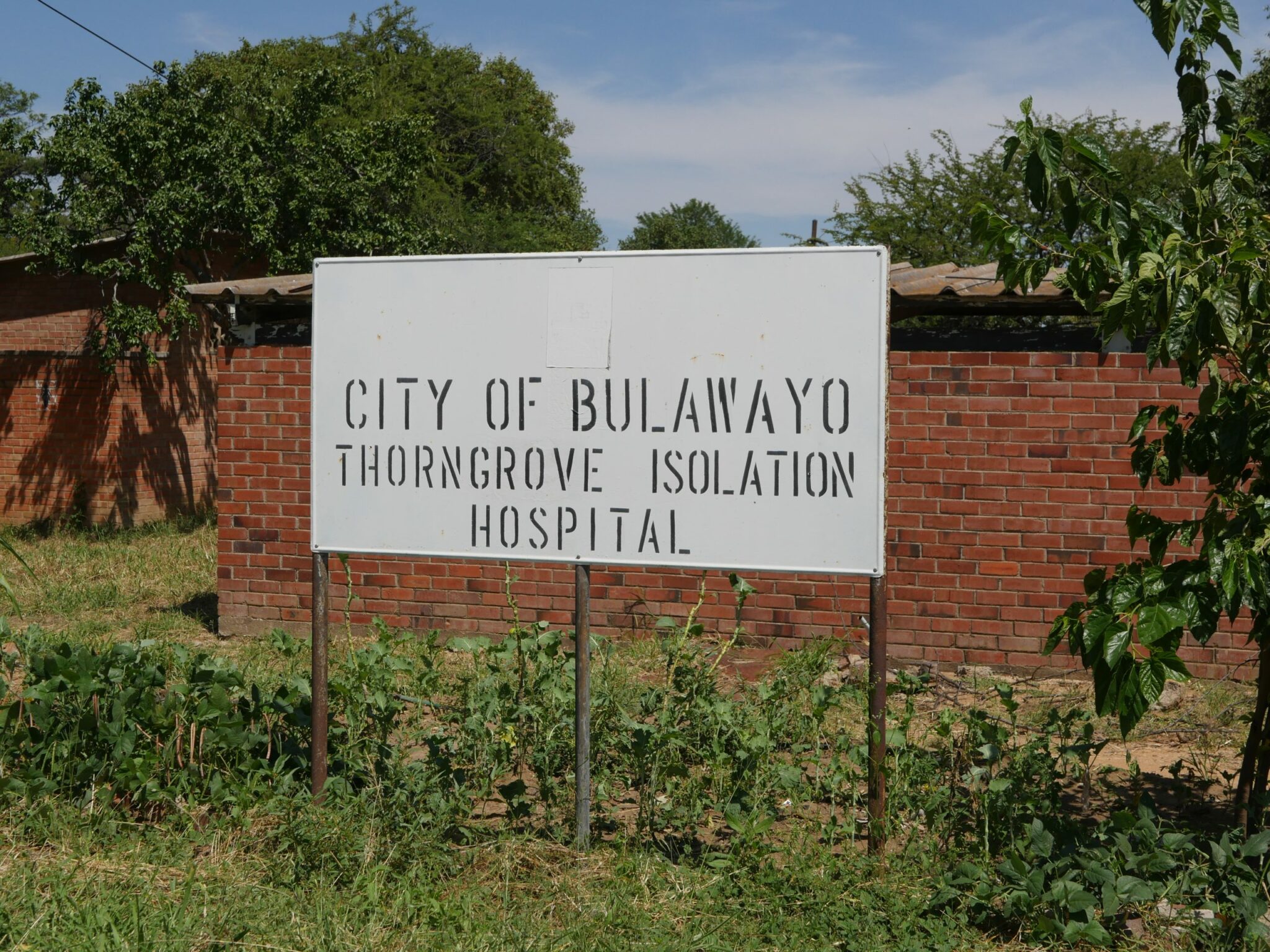Health officials in Bulawayo have said the emergence of Coronavirus (COVID-19) has shown the importance of isolation facilities where patients are quarantined to avoid spreading the disease.
COVID-19 patients are either admitted at isolation centres or quarantined, while those who do not need hospitalisation are advised to self-isolate, if they recently returned from countries where the virus is rapidly spreading, or have knowingly come into contact with an infected person.
In Bulawayo, Thorngrove Infectious Disease Hospital, is one such facility that was built and designed to cater for people who have infectious diseases.
Speaking at a donation of Personal Protective Equipment (PPE) clothing to Thorngrove Hospital Thursday, Bulawayo’s Director of Health Services, Dr Edwin Sibanda, said the coronavirus was a disease that called for reflection and analysis.
Dr Sibanda said history books spoke of sanatoriums or sanatoria, patients with infectious diseases such as TB and other infectious conditions would be isolated from others, which was the intention behind Thorngrove.
“Even Thorngrove hospital was put here because there is no residential area or there was no intention to have a residential area around,” he noted.
But the health expert lamented that over the years, as infectious conditions were almost eradicated in the world, these isolation facilities were destroyed or revamped to cater for other conditions.
“These hospitals were called Nazareth, I don’t know why the hospitals were referred to that but they were just slowly removed or converted into other high tech hospitals because we were moving from infectious diseases to non-communicable diseases such as cancer, diabetes, asthma, hypertension,” said Dr Sibanda.
He lamented that those isolation centres were neglected.
“As a result in Bulawayo here, if you go to the United Bulawayo Hospitals (UHB) one of the hospitals in that group of hospitals is an infectious diseases hospital and most of us don’t even know because it was closed down and has become an orthopaedic centre or something. We used to have Mpilo Chest, it was removed and called OI, because we all thought infectious diseases hospital were no longer necessary but COVID has told us we are wrong,” said the health expert.
Dr Sibanda observed that isolation facilities were necessary as they prevented the spread of diseases and limited deaths.
“If you look at Europe, where they have had the highest deaths, it’s because they don’t have these hospitals. The deaths were probably because when everyone fell ill they were shoved into the nearest hospital where you had people with non-communicable conditions. They then died in big numbers because they were now mixing the patients,” he said and pleaded that everybody must do whatever it takes to keep infectious disease hospitals such as Thorngrove working.
“We must keep this hospital working and improve it. Even if it’ for the next 100 years because the next big outbreak of an infectious disease maybe 100 years away. The Spanish Flu occurred in 1918 so we may need to keep this facility for a long time. Thorngrove was built in 1941 and we all see how old it looks.”
He urged stakeholders to support Thorngrove as it the final common pathway for those who suffered from infectious diseases.
“If you have TB in this city, whether rich or poor, Thorngrove becomes an equaliser as all of us have to come here. There’s no other hospital that will admit you if you have TB today or if you have cholera no one will take you in the city but will come to Thorngrove. So this is our hospital as the mayor often says. It doesn’t belong to the City Health Department or the city council, it’s our hospital, as the city of Bulawayo,” Dr Sibanda said.
Dr Sibanda said COVID-19 has also brought to the fore and reminded health workers that their work is dangerous.
“Most of us joined health care thinking it’s not a dangerous job, it’s only the army people who joined thinking they could die in the line of duty but in health no one thought so, expect that we may contract conditions but not die. But this disease has come in to remind us of this fact,” he said.
He added that everyone had a role to spread the gospel of prevention while fighting COVID-19.
“Let me remind you when you think, suspect or fear, since COVID-19 instils fear that you have the virus or think your neighbour has it please, don’t just take them to hospital or bring them to Thorngrove. It may not be safe for you for them or safe for the staff. Call the city’s call centre so the rapid response teams can respond.
“The numbers are 08084700 for Econet users, 08004700 Telone users and 0292 2712920 for all local networks. For Whatsapp only use 0774 668 432. Let our rapid response teams respond. Some people may not actually have COVID-19 but these days it’s not almost allowed to cough, it’s not written anywhere, yet people feel apprehensive so when neighbour coughs don’t take them to hospital let our rapid response teams respond. They may actually tease out that the cough is due to dust, or one is a smoker or has heart failure,” Dr Sibanda summed.

